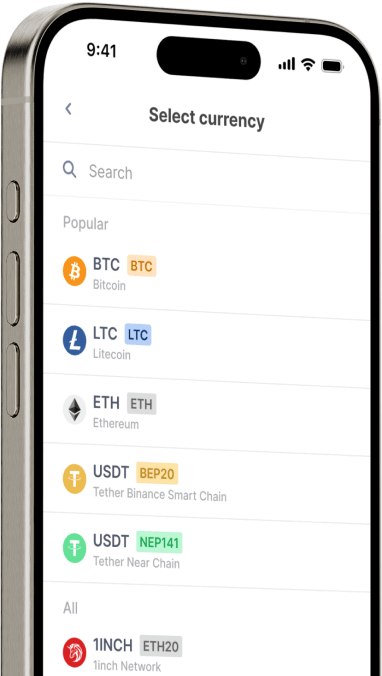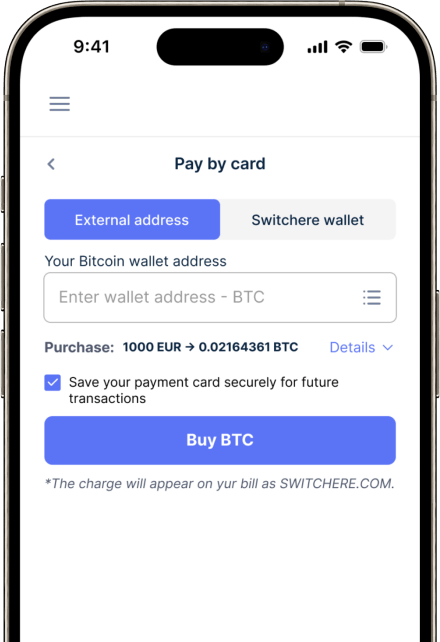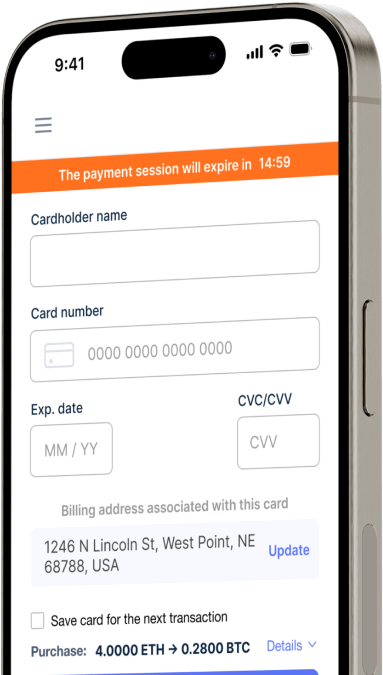Convert
New Taiwan Dollar (TWD) to EOS (EOS) Instantly
Purchase EOS (EOS) with New Taiwan Dollar (TWD) easily at Switchere and benefit from fast, secure transactions.
About
EOS (EOS)
EOS (EOS) is a third-generation blockchain platform engineered using the EOSIO open-source software, designed to support the development, hosting, and execution of decentralized applications (dApps) at scale. It aims to solve the scalability and usability challenges prevalent in earlier blockchain technology by offering high transaction throughput and a flexible governance model. The core of its architecture revolves around a Delegated Proof-of-Stake (DPoS) consensus mechanism, where token holders vote for Block Producers (BPs) responsible for validating transactions and maintaining the decentralized network. This system is designed to enable faster block times and significantly higher transactions per second compared to many proof-of-work networks.
A key distinguishing feature of EOS is its resource-based model, where holding and staking EOS tokens grants users and developers proportional access to network resources like CPU (computation) and NET (bandwidth), rather than requiring per-transaction gas fees. RAM, another critical resource for storing on-chain data, is traded on an open market. EOS supports smart contracts written in C++ and compiled to WebAssembly (WASM), providing a robust environment for complex dApp development. The EOS digital asset serves multiple functions: it's a utility token for accessing network resources, facilitates on-chain governance through voting for BPs and protocol amendments, and acts as a medium of exchange within its ecosystem.
EOS positions itself as a foundational Web3 infrastructure, striving to provide a developer-friendly and enterprise-grade platform. While facing a competitive landscape, its emphasis on scalability, a feeless-like user experience through resource staking, and its established smart contract capabilities allow it to support diverse DeFi applications, gaming platforms, and other on-chain solutions. The ongoing development of the EOSIO software and community-led initiatives continue to shape its role within the broader digital ledger space, focusing on enhancing performance and interoperability.
Buy Other 150+ Cryptocurrencies for New Taiwan Dollar (TWD)
Other Coins for New Taiwan Dollar (TWD)
-
TWD to ZRX
-
TWD to 1INCH
-
TWD to AAVE
-
TWD to ACH
-
TWD to ALGO
-
TWD to TLM
-
TWD to ANKR
-
TWD to APE
-
TWD to NFT
-
TWD to API3
-
TWD to APT
-
TWD to ARPA
-
TWD to AUDIO
-
TWD to AVAX
-
TWD to AVAX
-
TWD to AXS
-
TWD to BADGER
-
TWD to BAL
-
TWD to BNT
-
TWD to BAT
-
TWD to BNB
-
TWD to BUSD
-
TWD to BSW
-
TWD to BSV
-
TWD to BLUR
-
TWD to BONE
-
TWD to CTSI
-
TWD to CELR
-
TWD to CELO
-
TWD to CEL
-
TWD to LINK
-
TWD to CHZ
-
TWD to CHR
-
TWD to C98
-
TWD to COMP
-
TWD to CFX
-
TWD to PEOPLE
-
TWD to CVX
-
TWD to ATOM
-
TWD to CTC
-
TWD to CRV
-
TWD to DAI
-
TWD to DASH
-
TWD to MANA
-
TWD to DENT
-
TWD to DGB
-
TWD to LEASH
-
TWD to DYDX
-
TWD to XEC
-
TWD to EOS
-
TWD to ETC
-
TWD to ENS
-
TWD to ETHW
-
TWD to FET
-
TWD to FIL
-
TWD to FLOKI
-
TWD to GALA
-
TWD to GNO
-
TWD to ONE
-
TWD to HBAR
-
TWD to HOT
-
TWD to HOOK
-
TWD to ICX
-
TWD to ILV
-
TWD to IMX
-
TWD to INJ
-
TWD to ICP
-
TWD to IOST
-
TWD to IOTX
-
TWD to JASMY
-
TWD to JST
-
TWD to KAVA
-
TWD to KCS
-
TWD to KSM
-
TWD to KNC
-
TWD to LDO
-
TWD to LQTY
-
TWD to LPT
-
TWD to LOOKS
-
TWD to LRC
-
TWD to LUNA
-
TWD to MKR
-
TWD to MASK
-
TWD to EGLD
-
TWD to ALICE
-
TWD to NEAR
-
TWD to XEM
-
TWD to NEXO
-
TWD to NOT
-
TWD to NMR
-
TWD to OKB
-
TWD to OMG
-
TWD to ONT
-
TWD to EDU
-
TWD to OP
-
TWD to OGN
-
TWD to CAKE
-
TWD to PAXG
-
TWD to PENDLE
-
TWD to DOT
-
TWD to POL
-
TWD to QTUM
-
TWD to QNT
-
TWD to RDNT
-
TWD to XRD
-
TWD to RVN
-
TWD to REN
-
TWD to RSR
-
TWD to RLC
-
TWD to RPL
-
TWD to SFP
-
TWD to SHIB
-
TWD to SKL
-
TWD to SXP
-
TWD to STND
-
TWD to STG
-
TWD to XLM
-
TWD to GMT
-
TWD to STORJ
-
TWD to STMX
-
TWD to SUSHI
-
TWD to SNX
-
TWD to USDT (NEP141)
-
TWD to USDT (FA2)
-
TWD to USDT (TRC20)
-
TWD to USDT (JETTON)
-
TWD to USDT (SPL)
-
TWD to USDT (ERC20)
-
TWD to USDT (AVAC)
-
TWD to USDT (BEP20)
-
TWD to USDT (Polygon)
-
TWD to XTZ
-
TWD to GRT
-
TWD to SAND
-
TWD to TFUEL
-
TWD to THETA
-
TWD to RUNE
-
TWD to TON
-
TWD to TUSD (BEP20)
-
TWD to TUSD (TRC20)
-
TWD to TWT
-
TWD to UOS
-
TWD to UMA
-
TWD to UNI
-
TWD to USDC (SPL)
-
TWD to USDC (Polygon)
-
TWD to USDC (OP)
-
TWD to USDC (TRC20)
-
TWD to USDC (BEP20)
-
TWD to USDC (BEP20)
-
TWD to USDC (AVAC)
-
TWD to USDC (ARB)
-
TWD to USDC (ERC20)
-
TWD to VET
-
TWD to VRA
-
TWD to WAXP
-
TWD to WOO
-
TWD to WLD
-
TWD to WBTC
-
TWD to WMINIMA
-
TWD to XDC
-
TWD to YFI
-
TWD to YGG
-
TWD to ZIL




